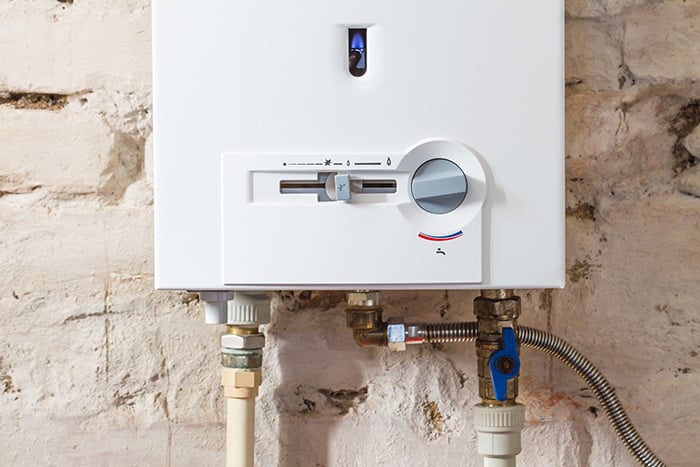Most homeowners never give a thought to their home’s water heater until they emerge miserable from a cold shower. They forget to provide the necessary service that these essential devices need and only remember when it is too late, and they have no hot water. But what they are not aware of is that as their water heater aged, it created other problems that could have been sliding under their radar. It was only when the unit finally failed that the cold water forced a harsh realization. If you have an older water heater in your home, you should consider replacing it to eliminate the following risks and unnecessary expenses that it is creating.
Wasted Water
As a water heater ages, it can become less efficient heating water. But, again, the problem could be due to neglect. If you did not drain and flush the holding tank each year, there is sure to be a thick layer of sediment and mineral build-up functioning as a blanket of insulation on the heating element. That build-up makes the water heater work harder to heat your water. And eventually, it is just not able to get the water as hot as it once was.
The insulation result is that you stand for several minutes waiting for hot water to reach your shower. And all the water that is running down the drain is wasted. A new, more efficient water heater will keep the water piping hot and eliminate needing to stand and wait for somewhat hot water to make it to the shower.
Potential Leaks
Old water heaters are much more prone to leaks than a new unit. Dealing with mineral-rich water for years means that the inside of the tank, the fittings, valves, and pipes can all begin to corrode. When that happens, water begins to seep or leak from the water heater or its nearby plumbing lines or components. Unless you are in the habit of regularly inspecting your water heater for leaks, you will be getting an unpleasant surprise when you discover the leak and water damage to your home. Replacing an old water heater before it begins to leak is the best way to avoid these costly discoveries.
Wasted Energy
As we mentioned before, older water heaters are not able to operate as energy-efficiently as new models. In addition, when neglected, they need to work extra hard to keep water hot. That insulating barrier of mineral build-up can mean that the unit is running almost constantly. This excess work costs you a ton of money in electricity or natural gas, depending on the type of water heater in your home. But it also decreases the life of the heating components of the water heater. So you are shortening what little life might be left in your water heater.
What Is Old For A Water Heater?
The average conventional water heater should last between eight and 12 years. But that range assumes proper care, including annual draining and flushing. Without that service, the life will certainly be limited to single digits. If your water heater is closing in on a decade old, you are well within the window to proactively replace it.
Call (701) 402-6442 for a free, no-obligation price quote for a new water heater installation. The licensed plumbers at Total Care Plumbing will remove the old unit and replace it in just a few hours to eliminate the potential for costly water leaks, wasted energy and water, and that awful cold shower. Instead, you will have plenty of hot water and a full warranty on your new water heater.






